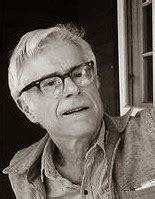A Quote by Anna Ternheim
Sweden is a small country. All cities seem small after a while. I was hanging out at a rehearsal hall in Williamsburg and I don't know how many people I ran into just being there for a couple days. Music makes all cities smaller.
Related Quotes
Fifty percent of the world's population lives in cities. In a couple of decades, 70 percent of the world's population will be living in cities. Cities are where the problem is. Cities are where the solution is, where creativity exists to address the challenges and where they have most impact. This is why, in 2005, the C40 was founded, an organization of cities that address climate change. It started with 18 cities; now it's 91. Cities simply are the key to saving the planet.
A lot of people have a hard time living out of a suitcase, being on the road constantly in different cities. For us it's just kind of what we do. You do get homesick. I miss my wife, I miss my home, I miss my dogs, I miss my kitchen, which is something I like to do outside of this is cook. You miss the simple things. But when you look at the big picture we get to see a crazy amount of cities and the people we get to meet, all over the world it kind of makes up for it. It makes you realize how lucky you are because it could be gone tomorrow you just never know.
For the most part, French cities are much better preserved and looked after than British cities, because the bourgeoisie, the people who run the cities, have always lived centrally, which has only recently begun to happen in big cities in England. Traditionally in England, people who had any money would live out in the suburbs. Now, increasingly, people with money live in the cities, but this has changed only in the last 20 or so years.
As a country, Americans have to find a way to keep our cities solvent. If large numbers of cities no longer have the necessary tax base, we have to find federal methods to intervene. If we don't, there's a risk of dozens of cities simply being left to their bankrupt fates - and I can't see how that serves anybody's interests in the long run.
While cities are distinguished by their architecture and physical appearance, Bell and de-Shalit make a compelling case that many major world cities--and their inhabitants--also express their own distinctive ethos or values. The Spirit of Cities takes the reader on a wide-ranging and lively personal journey.
By rebuilding transportation so that you're not owning this thing that just sits there all the time, you get to rebuild cities in the process. If we do this right as a country, we have a chance to re-create our cities with the people, rather than cars, at the center. Our cities today have been built for the car. They've been built for car ownership. Imagine walking around in the city where you don't see any parking lots and you don't need that many roads.
I've spent most of my life living in cities where people are obsessed with looking down on people from everywhere else. You get so used to doing it that you start to believe it's simply what everyone does. It makes for an atmosphere of unwelcome that penetrates much of our modern life. It's a shame really because a couple days in Oklahoma will open your eyes to how much better it would be if the rest of the country was filled with a few more people from Oklahoma.
You have to take in the whole picture, and ask, "What is it you want? What kind of world do you want?" So, I have drawings of different cities. Those cities have an end goal; they're not just cities. The end goal of those cities is to make things relevant to people that they respond to. There's no other way.




































